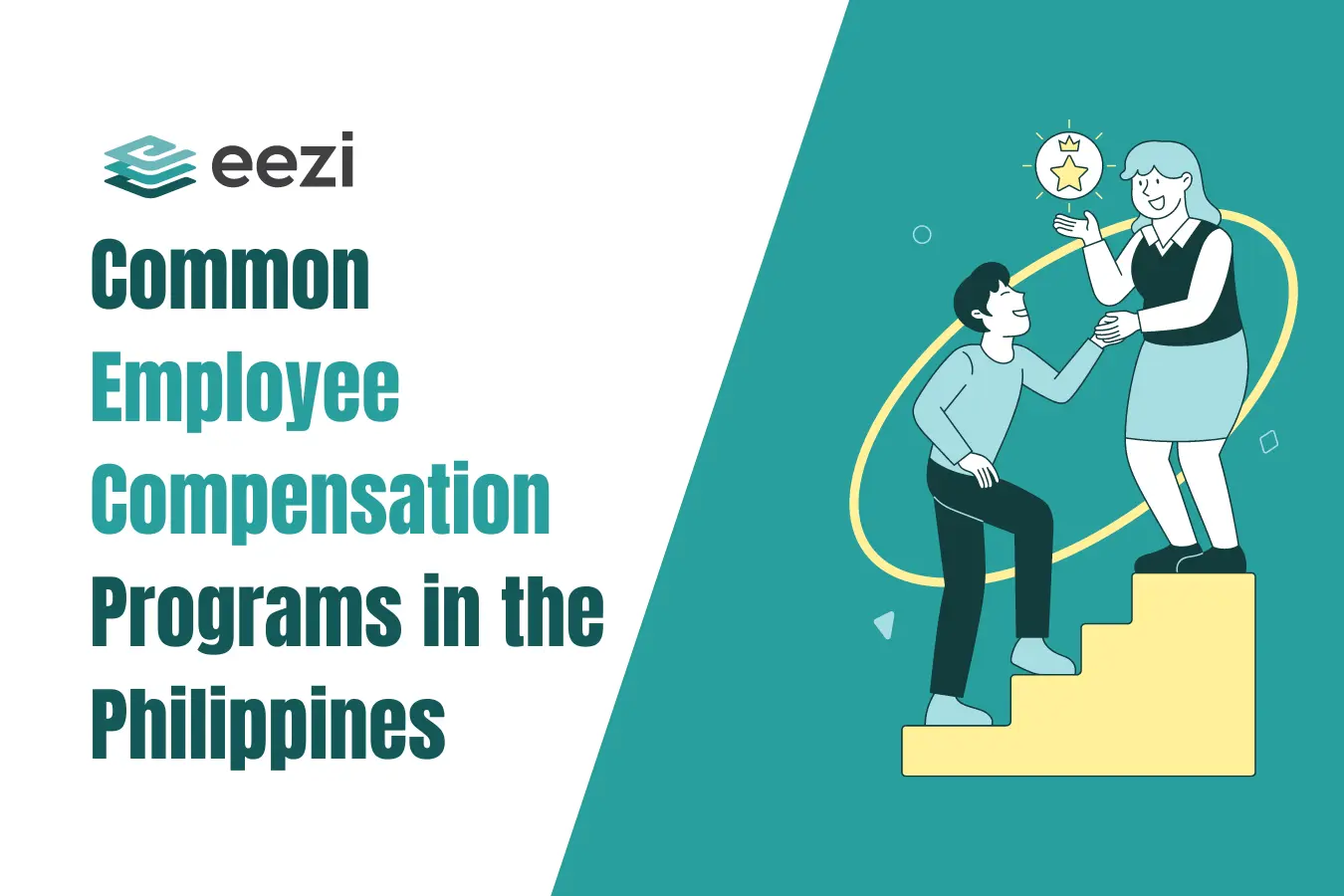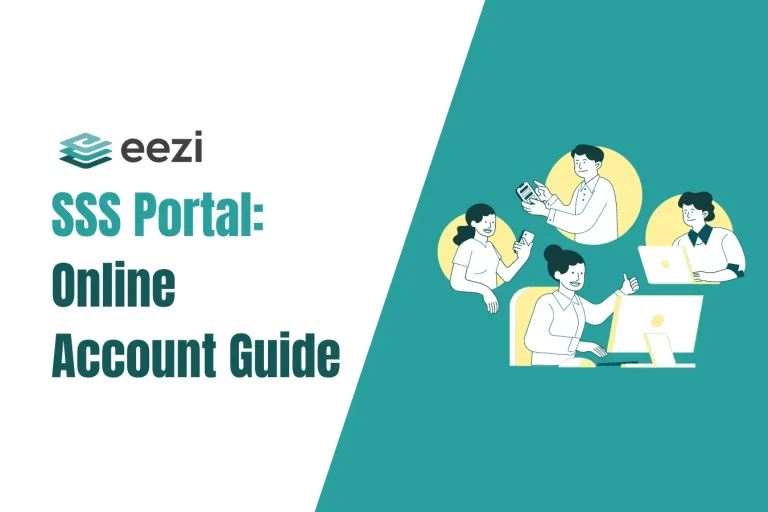What are the common employee compensation packages in the Philippines, and why are they important?

Employees are a business’s most valuable resource, and their overall satisfaction at work largely depends on the benefits and compensation they receive.
A favorable employee compensation package can lower employee turnover, draw in dedicated, driven, and enthusiastic candidates, and improve employee satisfaction. Moreover, employers can use this to recognize federal employees for their commitment and hard work.
Therefore, adhering to all compensation laws in the Philippines ensures that your business remains compliant. But most importantly, it offers excellent workers compensation programs that will keep and attract top employees.
This article will cover the basics of employee compensation benefits, the purposes of compensation programs, and the range of compensation programs available in the Philippines.
What is the compensation benefit for employees?
Benefits and compensation are essential components of human resource management. Rewarding compensation and benefits programs attract top talent and promote employee retention, motivation, and a great work environment.
The monetary value a team member receives for their work is known as compensation. This monetary value may include commissions, wages, bonuses, and salaries.
On the other hand, benefits are extra, non-cash advantages or rewards that a business offers to its federal employees. Some benefits could be financially valuable even if a team member doesn’t get cash.
However, some benefits have a monetary worth. These include retirement savings plans, health insurance, stock options, and equity. Some benefits could also include a flexible work schedule, paid time off, or chances for learning and growth, which are non-monetary benefits.
Three types of compensation
Various types of employment compensation programs depend on whether the employee receives them directly or in cash. Here are the following workers compensation benefits:
- Indirect compensation
- Direct compensation
- Non-monetary compensation
Direct compensation
Paying an employee directly has a monetary value known as direct compensation. It consists of variable pay (commission and bonuses) and base pay (wages and salary).
Base pay
The amount of money an employee receives on a regular basis is their base salary or pay (this could be monthly or bi-weekly). Salaried employees usually have fixed compensation specified in their contract and set annually.
This kind of pay is usually for skilled workers, full-time employees, and personnel in management roles. Physicians, accountants, and teachers typically receive salaries.
A worker’s hourly wage may also be determined by the number of hours they work during a pay period. Hourly workers’ compensation is usually given to part-timers, recent hires, or entry-level personnel who have yet to show their abilities.
Variable pay
Variable compensation or pay includes bonuses and commissions, where federal employees may receive varying amounts of money every pay period depending on various factors.
For instance, an organization might reward top performers or staff members who meet targets and successfully finish projects with merit pay or an end-of-year bonus.
Unlike discretionary performance bonuses, which are frequently withheld until an employee is ready to receive them, non-discretionary bonuses have precise eligibility requirements, and employees know the goals they must meet to qualify.
Many businesses provide profit-sharing to their staff. In other words, incentives are given to federal employees based on the company’s quarterly or annual profitability.
Employees may be greatly motivated by this to give their jobs their all. Drafting a policy that specifies how an employee may take this money out is a good idea.
The commission is a typical form of workers’ compensation for sales teams. A portion of sales representatives generate sales toward their commission; this percentage rises if they surpass their quota. Different kinds of commissions exist:
- Straight commission
- Salary plus commission
- Tiered commission
- Graduated commission
- Residual commission
- Variable commission
- Territory volume commission
Indirect compensation
Indirect compensation is one sort of monetary compensation in which the employer does not contribute financially. Rather, these are usually compensated as perks and may include the following:
Statutory benefits
- Disability insurance
- Health insurance
- Medical leave
- Social security
- Retirement plans
- Unemployed insurance
Non-mandatory benefits
- Life insurance
- Stock options
- Paid time off
- Tuition reimbursement
Non-monetary compensation
This usually consists of providing high-performing staff members with an incentive that isn’t always quantifiable in monetary terms:
- Shopping coupons
- Travel vouchers
- Tuition assistance
- Opportunities for career development
Other non-financial benefits can be given to all federal employees:
- Options for working remotely
- Flexible work schedules
- Company provided equipment
- Gym memberships or other similar wellness services
- Fringe benefits
- Childcare
Read more: Different types of employment in the Philippines
What does total compensation mean?
All of the aforementioned might be included in total employee compensation.
For instance, the total compensation of a junior sales employee may consist of base salary plus commissions, required benefits, and non-monetary benefits like company-provided devices and remote work alternatives.
Their overall compensation may increase as they get promoted and take on the role of sales manager.
Giving your employees access to the total compensation statement is a good idea because it promotes corporate transparency and aids in their understanding of their pay. The statement provides a breakdown of all pay items so the employee can contact HR or their manager with any questions.
What is the Employees’ Compensation Program (ECP) in the Philippines?
The government’s Employees’ Compensation Program (ECP) is intended to offer survivor benefits or workers’ compensation benefits to public and private employees and their dependents in the event of an illness, accident, or death related to their place of employment.
The goals are to develop policies and procedures to enhance the Workers’ Compensation Program and offer workers a relevant and suitable compensation package in work-related emergencies.
The following are covered under the Workers Compensation Programs (ECP):
- Employees in the private sector who have enrolled in the Social Security System (SSS), except for independent contractors or volunteers.
- Employees of the government sector who are registered members of the GSIS, such as PNP and AFP, the BFP, the BJMP, all short-term, emergency, substitute, and contractual workers, as well as elective government officials who receive a regular salary.
Coverage in the workers’ compensation programs begins on the first day of employment.
When is injury or sickness compensable?
If the conditions outlined in Annex “A” of the Amended Rules on Employees’ Compensation are met, the illness and any ensuing disability or death must be compensable; if not, evidence demonstrating that the working environment increases the risk of contracting the illness is required.
The accident that resulted from and occurred while employed are eligible for compensation.
Services and benefits of the program
- Compensation for lost income resulting from an employee’s incapacity to work, either in the form of monetary benefits or wage loss. The three categories of income benefits loss include Permanent, Temporary, and Permanent Partial Disability.
- Rehabilitation services help employees reach their full potential in terms of their mental, professional, and social development, as well as support them in continuing to be valuable members of society. These services include physical treatment, vocational training, and special assistance.
- Medical benefits cover hospital stays, surgery fees, medication costs associated with the disease or damage, payment to medical services, and expenditures related to supplies and appliances. Only hospital ward services that have received accreditation are provided as medical services.
- Beneficiaries of an employee who passed away due to illness or injury sustained while working are eligible for death benefits.
- Employees who have a permanent total disability resulting from their employment, to the extent that they are unable to care for their basic personal needs on their own, are eligible to receive Carer’s Allowance.
What does the ECC in DOLE mean?
The Philippines Labor Code, or Presidential Decree (PD) 442, established the Employees’ Compensation Commission (ECC) on November 1, 1974. The ECC was made fully effective on January 1, 1975, with the issuing of PD No. 626.
The Employees’ Compensation Program (ECP), which offers a package of compensation to private and public sector employees and their dependent children or spouse in case of work-related eventualities such as illness, injury, disability, or death, was implemented by the quasi-judicial corporate entity ECC.
ECC is required by law to give workers meaningful and competitive compensation. Its primary functions include the following:
- To provide recommendations and policies aimed at enhancing the ECP;
- To examine and determine whether to approve EC claims that the Systems (SSS and GSIS) have rejected and
- To start implementing policies and initiatives to ensure proper workplace safety, health, and accident avoidance.
Who is covered by ECC?
Only employees in the formal sector are covered by the Federal Employees Compensation Act (FECA). These workers include paying members of the Government Service Insurance System (GSIS) and Social Security System (SSS), as well as members of the Armed Forces of the Philippines (AFP), Bureau of Jail Management and Penitentiary (BJMP), Philippine National Police (PNP), and Judiciary.
Moreover, according to the Federal Employees Compensation Act (FECA), Filipino seafarers with SSS coverage requirements are also eligible. Lastly, land-based contract workers are only covered by the ECP if their employer, whether legal or not, conducts business, trade, or industry in the Philippines.
Why are employee compensation programs important?
Offering competitive workers’ compensation programs can set a business apart from other employers in the industry. Employers hire staff to accomplish organizational objectives, and job seekers join companies to grow financially and professionally.
Businesses that create a competitive employee compensation package stand to get the following advantages:
Attracting top talent and increasing employee retention
Companies must manage team member retention and continuously hire high-performance personnel for company continuity. Talented individuals frequently know how to market themselves and bargain for the finest compensation packages effectively.
Offering a desirable combination of monetary and non-monetary possibilities can attract people, lower recruitment expenses, and make an organization more competitive in the market.
Motivated employees
Compensation packages below the industry average can make it difficult for firms to retain highly motivated employees. Competitive raises inspire employees to give their all, lower absenteeism, and strengthen staff retention.
Benefits like a gym at work, pre-paid meals, more paid time off, or a gift card for reaching a milestone might encourage team members to complete their work in addition to cash pay.
Improved engagement and loyalty
Team members who feel valued and appreciated by their employer are likelier to believe in the company’s overall mission, be more loyal and engaged, and help boost staff retention.
Product discounts, flexible work hours, personal days, childcare services, and gym memberships are a few examples of advantages that help employees feel appreciated and understood at work.
Boosted productivity
Team members who feel underappreciated or underpaid may devote more time to personal interests or do poor work proportional to their pay.
On the other hand, a well-executed employee compensation and benefits plan encourages greater productivity and efficiency at work by rewarding team members for their contributions. Sales incentives, team awards, and performance-based evaluations can inspire team members and boost output.
Take away
Understanding these employee compensation programs is crucial for both employers and employees to ensure transparency and satisfaction in the workplace.
Employers should regularly review and update their compensation strategies and standard company benefits to stay competitive in the job market and attract and retain top talent.
Simplify compensation planning with eezi
Say goodbye to complexity. Click here to see how eezi Payroll System can simplify your compensation programs and bring efficiency to your HR tasks.



